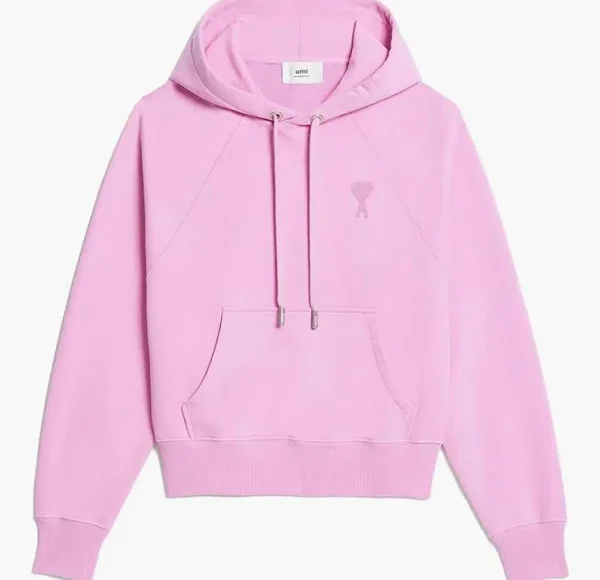Picture this: you walk into a room wearing a plain polo shirt, and nobody gives you a second glance. Now imagine walking in with that same shirt featuring your company logo beautifully stitched across the chest. Suddenly, you’re not just another face in the crowd – you’re a walking advertisement, a professional presence that commands attention.
That’s the magic of professional embroidery services. These specialized businesses transform ordinary fabrics into extraordinary statements through the art of decorative stitching. Whether you’re a business owner looking to brand your team uniforms or an individual wanting to personalize your favorite jacket, embroidery services bridge the gap between plain and remarkable.
The Rich History Behind Modern Embroidery Techniques
Embroidery isn’t just a modern marketing tool – it’s an ancient craft that has evolved into today’s sophisticated industry. From the intricate silk threads of Chinese dynasties to the gold threadwork of medieval European courts, embroidery has always represented quality, prestige, and attention to detail.
Today’s embroidery services combine this traditional artistry with cutting-edge technology. Computer-controlled machines can recreate the most complex designs with precision that would make ancient craftspeople marvel, yet the essence remains the same: transforming fabric into something extraordinary.
Understanding Different Types of Embroidery Work
Machine Embroidery vs. Hand Embroidery
When you contact professional embroidery services, you’ll typically encounter two main approaches. Machine embroidery dominates the commercial landscape because it offers consistency, speed, and cost-effectiveness for large orders. These computerized systems can reproduce your logo thousands of times with identical precision.
Hand embroidery, while less common commercially, still has its place for specialty work, repairs, or when you want that authentic, artisanal touch that only human hands can provide.
Commercial vs. Custom Embroidery Solutions
Commercial embroidery focuses on volume – think corporate uniforms, team jerseys, or promotional items. Custom work, however, caters to individual needs, special occasions, or unique design requirements that demand personal attention.
Industries That Benefit Most from Professional Embroidery
Corporate Branding and Uniforms
Your employees are your best marketing assets. When they wear professionally embroidered uniforms featuring your company logo, they become walking billboards that build brand recognition wherever they go. Industries like hospitality, healthcare, automotive, and retail rely heavily on embroidered uniforms to maintain professional appearances.
Sports Teams and Athletic Wear
From little league to professional sports, embroidered team names, player numbers, and logos create unity and pride. The durability of embroidery makes it perfect for athletic wear that endures frequent washing and heavy use.
Fashion and Apparel Industry
High-end fashion brands use embroidery to add luxury touches to their garments. A simple dress becomes a designer piece when adorned with intricate embroidered patterns or brand logos.
How to Choose the Right Embroidery Service Provider
Quality Assessment Factors
Not all embroidery services are created equal. Look for providers who showcase their work proudly, offer samples, and maintain consistent quality across different fabric types. The thread quality, stitch density, and finishing work all contribute to the final product’s appearance and durability.
Technology and Equipment Standards
Modern embroidery requires sophisticated equipment. Ask potential providers about their machine capabilities, thread types, and digitizing software. Advanced equipment translates to better results and faster turnaround times.
Customer Service and Communication
Embroidery projects involve collaboration. Your service provider should understand your vision, offer design suggestions, and keep you informed throughout the process. Clear communication prevents costly mistakes and ensures satisfaction.
The Design Process: From Concept to Finished Product
Digital Design and Digitizing
Your logo or design needs to be converted into a digital format that embroidery machines can read. This process, called digitizing, requires skill and experience. Professional embroidery services employ skilled digitizers who understand how different fabrics and thread types will interact with your design.
Thread Selection and Color Matching
Thread choice affects both appearance and durability. Quality providers stock various thread types – polyester for durability, rayon for shine, or specialty threads for unique effects. Color matching ensures your embroidered logo matches your brand guidelines precisely.
Sample Approval and Production
Reputable services provide samples before full production begins. This step allows you to see exactly how your design will look and make any necessary adjustments before committing to the entire order.
Popular Items for Embroidery Customization
Apparel and Clothing
Shirts, jackets, hats, and uniforms top the list of popular embroidery items. The key is matching the embroidery style to the garment type – delicate designs work well on dress shirts, while bold logos suit workwear.
Promotional Products and Gifts
Embroidered towels, bags, blankets, and accessories make memorable promotional items or corporate gifts. These products often have longer lifespans than traditional advertising materials, providing extended brand exposure.
Home and Decorative Items
From personalized pillows to custom wall hangings, embroidery adds elegance to home décor. Many embroidery services expand beyond apparel to offer home customization options.
Cost Factors in Embroidery Projects
Design Complexity and Stitch Count
Simple text costs less than intricate logos with multiple colors and fine details. Stitch count directly impacts production time and, consequently, pricing. Understanding this helps you balance design ambitions with budget constraints.
Quantity and Volume Discounts
Like most manufacturing processes, embroidery becomes more economical with larger quantities. Setup costs get distributed across more pieces, reducing per-item costs significantly.
Rush Orders and Timeline Considerations
Need your order quickly? Most embroidery services accommodate rush requests for additional fees. Planning ahead saves money and ensures better quality control.
Quality Control in Professional Embroidery
Thread Quality and Durability
Premium threads resist fading, breaking, and wear better than cheap alternatives. Quality embroidery services use branded threads from reputable manufacturers, ensuring your investment looks good longer.
Stitch Density and Technique
Proper stitch density prevents puckering while ensuring adequate coverage. Too few stitches create gaps; too many can damage fabric or create stiffness. Experienced embroiderers find the perfect balance.
Finishing and Presentation
Professional finishing includes proper backing removal, thread trimming, and final pressing. These details separate amateur work from professional results.
Maintenance and Care for Embroidered Items
Washing and Cleaning Guidelines
Embroidered items require slightly different care than plain fabrics. Turn garments inside out, use gentle cycles, and avoid harsh chemicals that might damage threads or cause color bleeding.
Storage and Preservation
Proper storage prevents embroidery from snagging or distorting. Hang embroidered garments when possible, and store folded items with tissue paper to prevent creasing across embroidered areas.
Trends and Innovations in Modern Embroidery
3D and Raised Embroidery Effects
Modern techniques create dimensional effects that make designs literally pop off the fabric. These eye-catching techniques work particularly well for sports teams and fashion applications.
Eco-Friendly and Sustainable Options
Environmental consciousness drives demand for organic threads, recycled materials, and sustainable practices. Many embroidery services now offer eco-friendly options without compromising quality.
Digital Integration and Online Ordering
Technology streamlines the ordering process. Many services now offer online design tools, real-time pricing, and digital proofs, making professional embroidery more accessible than ever.
Common Mistakes to Avoid When Ordering Embroidery
Design and Size Miscalculations
Designs that look great on screen might not translate well to fabric. Work with experienced professionals who can advise on sizing, placement, and design modifications for optimal results.
Fabric Selection Errors
Not all fabrics embroider equally well. Stretchy materials, very thin fabrics, or heavily textured surfaces can create challenges. Discuss fabric choices with your embroidery service provider early in the planning process.
Future of Embroidery Services Industry
The embroidery industry continues evolving with technological advances, changing fashion trends, and new applications. Automated processes increase efficiency while maintaining quality, and new thread materials expand creative possibilities.
Smart technology integration, including apps that let customers visualize designs on products before ordering, makes professional embroidery more accessible to small businesses and individuals.
Conclusion
Professional embroidery services offer incredible value for businesses and individuals seeking to elevate their brand presence or personalize their belongings. From corporate uniforms that build professional credibility to custom gifts that create lasting memories, quality embroidery transforms ordinary items into extraordinary statements.
The key to success lies in choosing the right service provider, understanding the process, and clearly communicating your vision. With proper planning and realistic expectations, embroidery can become a powerful tool in your branding arsenal or a source of personal satisfaction.
Whether you’re outfitting a entire workforce or personalizing a single special item, professional embroidery services provide the expertise, equipment, and artistry to bring your vision to life with threads that tell your story.
Frequently Asked Questions
Q: How long does a typical embroidery project take to complete?
A: Timeline varies based on design complexity and order size. Simple logos on small quantities might be ready in 3-5 business days, while complex designs or large orders can take 2-3 weeks. Rush services are often available for additional fees.
Q: Can any design be embroidered, or are there limitations?
A: While embroidery is versatile, some limitations exist. Very fine details, gradients, and photographs don’t translate well to embroidery. Professional digitizers can modify designs to work better with embroidery techniques while maintaining the design’s essence.
Q: What’s the minimum order quantity for professional embroidery services?
A: Minimum orders vary by provider. Some accept single-piece orders, while others require minimums of 12, 24, or more pieces. Smaller quantities typically have higher per-piece costs due to setup fees.
Q: How do I prepare my logo or design for embroidery?
A: Provide your design in the highest resolution possible, preferably as a vector file (AI, EPS, or PDF). Include color specifications and any special instructions. Professional services can work with various file formats and help optimize designs for embroidery.
Q: What happens if I’m not satisfied with the embroidery quality?
A: Reputable embroidery services stand behind their work and often provide satisfaction guarantees. Discuss their quality assurance policies and revision procedures before placing your order to understand your options if issues arise.















Leave a comment